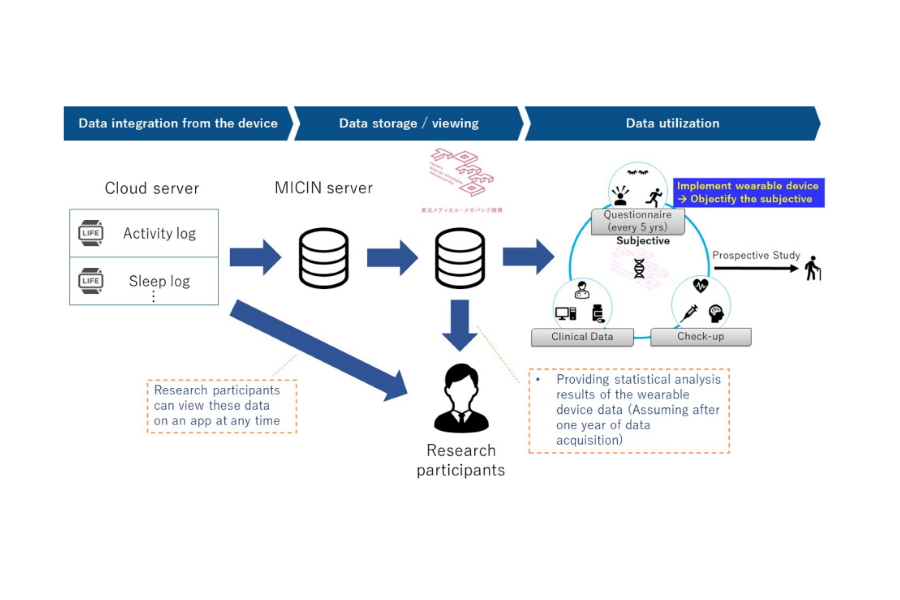Takeda, Daiichi-backed wearable study planned in Japan

A study that will look at the feasibility of tracking people's lifestyle habits for an extended period using a wearable device has got underway in Japan, backed by drugmakers Takeda and Daiichi Sankyo.
The device will be worn by 2,000 people for a year, harvesting data on sleep status, heart rate, and activity levels, according to the study partners, which also include digital health and telemedicine firm MICIN and Tohoku University.
The aim is to develop "a model case for the era of personalised healthcare based on wearable tracking devices and further drive the launch and utilisation of similar platforms in Japan and abroad," according to the partners.
The results generated in the study will be combined with data from Tohoku's Medical Megabank Project (TMM), a wide-ranging national project that is tracking the health of the Japanese population, originally set up in response to the 2011 earthquake and tsunami.
That includes health, clinical and MRI imaging data as well as genomic information, and the project could be useful in the discovery of new medicines and medical technologies, according to a joint statement.
TMM, the Japan Pharmaceutical Manufacturers Association (JPMA), and MICIN have already conducted a pilot study that involved 30 subjects who used a wearable tracking device for at least a month, showing the feasibility of the approach.
Recruitment of volunteers to take part in the study will start in the autumn, with each participant issued a wearable that can be managed using a smartphone app. They will also use a home blood pressure monitor and a thermo-hygrometer to log temperature and humidity in their bedrooms.
"The digitisation and visualisation of individual lifestyle data will dramatically accelerate patient centered drug research and development," commented Ceri Davies, head of Takeda's neuroscience drug discovery unit.
"Combined with this, we hope to develop new methods of utilising big data, which will not only lead to the creation of high-precision pharmaceuticals, but also contribute to medical care tailored to the characteristics of patients."













